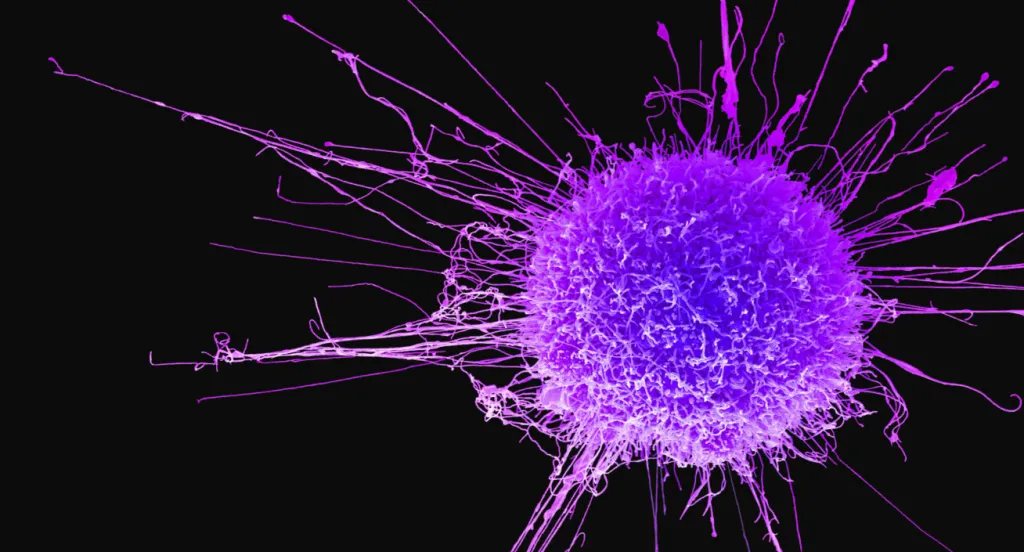Navigating the C-Word: A Personal Journey Through Understanding Cancer
Hey folks, Anthony Netherton here. If there’s one word that can send a shiver down anyone’s spine, it’s cancer. But instead of shying away from it, I decided to face it head-on and share with you all that I’ve learned. This isn’t just a clinical rundown; it’s a personal narrative that I hope will shed some light on this intricate and deeply human subject.
The Big Picture: What Is Cancer?
Cancer isn’t just one disease – it’s a group of diseases characterized by the uncontrolled growth and spread of abnormal cells. If the growth isn’t checked, it can lead to death. But here’s what I’ve learned – not all tumors are cancerous.
- Benign Tumors: These don’t spread and, once removed, usually don’t come back.
- Malignant Tumors: These are the bad guys, capable of invading other tissues and spreading throughout the body.

A World of Varieties: The Many Faces of Cancer
There are over 100 types of cancer, and they’re usually named for the organs or tissues where they form. Here’s a quick rundown of some common types:
- Breast Cancer: Not just a woman’s issue; men can get it too.
- Lung Cancer: A leading killer, and not just for smokers.
- Prostate Cancer: Exclusively a male problem, often with good prognosis if caught early.
- Colon Cancer: A big reason why those colonoscopy calls can’t be ignored.
Recognizing the Enemy: Symptoms and Signs
Cancer is sneaky, but there are signs. I’ve learned that paying attention to your body is key:
- Persistent Cough or Hoarseness: Could be lung cancer.
- Change in Bowel Habits: Colon cancer might be knocking.
- Unexplained Weight Loss: When the pounds drop without trying, it’s a red flag.
- Skin Changes: A new mole or a change in an existing one could be skin cancer.
The Diagnostic Front: How Is Cancer Detected?
Early detection can save lives, so here’s what the process often involves:
- Screening Tests: Like mammograms for breast cancer or Pap tests for cervical cancer.
- Biopsy: Taking a small sample of tissue to look for cancer cells.
- Imaging Tests: MRIs, CT scans, and X-rays provide a glimpse inside the body.
Suiting Up for Battle: Treatment Options
Once diagnosed, treatment plans can vary. Here’s a look at some conventional warriors in the fight against cancer:
- Surgery: Cut out the cancer if it’s localized.
- Radiation Therapy: Use high doses of radiation to kill cancer cells.
- Chemotherapy: Drugs that kill fast-growing cells, including cancer cells.
- Immunotherapy: Boosting the immune system to fight cancer.
The New Age of Cancer Combat: Emerging Treatments
Science is always advancing, and so are cancer treatments:
- Targeted Therapy: Drugs that target specific genes or proteins that are part of cancer cells’ growth.
- Hormone Therapy: Blocks cancer cells from getting the hormones they need to grow.
- Stem Cell Transplant: Restores blood-forming stem cells in patients who have had theirs destroyed by high doses of cancer treatments.
Support Systems: The Role of Support in Cancer Care
I cannot stress enough how crucial support is:
- Emotional Support: Counseling and support groups can be invaluable.
- Nutritional Support: A well-balanced diet is essential during treatment.
- Palliative Care: Focuses on quality of life for patients and their families.
Life After Cancer: The Road to Recovery
Surviving cancer is just the first step. There’s also the journey back to ‘normal’:
- Rehabilitation: Regaining strength and health post-treatment.
- Follow-up Care: Regular check-ups to catch any sign of cancer’s return.
- Survivorship: A term that signifies living life beyond cancer.
A Personal Note
In writing this, I’ve been reminded of the fragility of life but also of the incredible strength and resilience of those who face cancer. It’s a path that no one should walk alone, and knowledge is a powerful companion.
So, here’s to all the fighters, survivors, and the medical warriors on the front lines. May we continue to learn, to support, and to hope for a future where the word cancer isn’t quite so frightening.
Anthony Netherton, over and out.